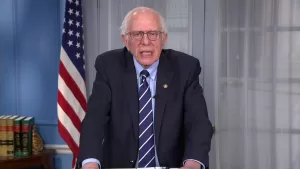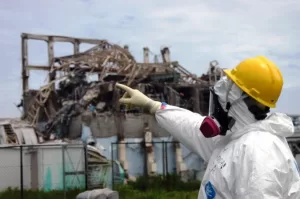[Jacques Baud is a former colonel of the General Staff, ex-member of the Swiss strategic intelligence, specialist on Eastern countries. He was trained in the American and British intelligence services. He has served as Policy Chief for United Nations Peace Operations. As a UN expert on rule of law and security institutions, he designed and led the first multidimensional UN intelligence unit in the Sudan. He has worked for the African Union and was for 5 years responsible for the fight, at NATO, against the proliferation of small arms. He was involved in discussions with the highest Russian military and intelligence officials just after the fall of the USSR. Within NATO, he followed the 2014 Ukrainian crisis and later participated in programs to assist the Ukraine. He is the author of several books on intelligence, war and terrorism. In this recent interview, Jacques Baud speaks with Thomas Kaiser of Zeitgeschehen im Fokus about what is now happening in Ukraine, and the enthusiastic warmongering that still persists in the West.]
Thomas Kaiser (TK): In the past couple of weeks , the narrative in the mainstream media has slightly changed. We hear less and less directly about the war, nothing more about the high losses of the Russians and the military successes of the Ukrainians. What has changed?
Jacques Baud (JB): In reality, nothing has changed. It is a change in perception. It has been known for several weeks that the situation of Ukraine and its armed forces is catastrophic. The human and material losses of the country are very high. Initially, Ukraine and our media downplayed these losses in order to develop a narrative around a Russian defeat and a Ukrainian victory. Today, the reality on the battlefield forces Ukraine to acknowledge these losses. At the same time, Zelensky understood that these losses could be used as an argument to pressure the West for further aid.
TK: On the other hand, what is always an issue is the demanded arms deliveries. Who is supposed to operate the weapons when most of the army is encircled in the Donbas?
JB: First of all, it is important to realize that Western arms deliveries pose several problems. First, even U.S. intelligence agencies do not know if and where the delivered weapons will end up. The head of Interpol warns that some of these weapons could end up in the hands of criminal organizations. Already, Javelin anti-tank missiles are being offered on the Darknet for $30,000. Apparently, these weapons are resold as soon as they arrive in Kiev. Second, weapons are often distributed on a first-come, first-served basis and do not always reach those who need them most in the field. Finally, they often end up in the hands of the Russian coalition.
TK: How can we tell?
JB: Currently, the Donetsk Republic militias are equipped with Javelin missiles, which come from the Ukrainian stocks captured from the Russian army. Remember that Ukrainian helicopters that had come to exfiltrate fighters from Azovstal were shot down with US-supplied Stinger missiles. Furthermore, the weapons supplied by the West make up only a fraction of those destroyed by the Russians. For example, Britain and Germany are each sending three M270 multiple rocket launchers to Ukraine, but at the beginning of the war Ukraine had several hundred equivalent systems. In other words, these weapons will not change anything, but only prolong the conflict and delay the time for negotiations, as Davyd Arakhamia, chief negotiator, and close adviser to Zelensky, explained.
TK: This is actually unbelievable. There was always talk about high Russian losses. Can they be verified, and what are the losses on the Ukrainian side?
JB: In reality, the number of soldiers killed is not known, neither by the Russians nor by the Ukrainians. The numbers mentioned in the Western media are those spread by Ukrainian propaganda. However, in early June, President Zelensky unveiled the death rate of Ukrainian military and spoke of 60 to 100 soldiers killed per day. A week later, Mykhailo Podoliak, Zelensky’s adviser, stated that the Ukrainian armed forces were losing 100 to 200 men a day. Today, Arakhamia speaks of 200 to 500 fatalities per day and a total of 1000 casualties (dead, wounded, captured, deserters) per day. It is unclear whether these figures are correct.
TK: Are there any comments on the basis of which one can get a realistic picture of the numbers?
JB: Experts close to the intelligence community believe that these figures are far below reality. On the other hand, the Ukrainian figures are even higher than the estimates of the Russian military. Some say that Ukrainian forces have 60,000 dead and 50,000 missing. However, these numbers are not verifiable at this time.
TK: Why are the Ukrainians only now reporting such high casualty figures?
JB: It is very likely that the Ukrainians are reporting high numbers in order to press the West to increase its arms deliveries. However, this does not explain everything. The fundamental issue is the way the Ukrainian leadership conducts its operations. Instead of having a dynamic approach to the battlefield and taking advantage by moving troops, Ukraine—and Zelensky in particular—is ordering its troops to “stand and fight.” This is not unlike the situation in France during the First World War. This is the main difference between Ukraine and Russia: in Ukraine, operations are managed by the political leadership, while in Russia, operations are managed by the General Staff. This explains the failing Ukraine’s approach. Even the US military seem to have identified this problem.
TK: In what way?
JB: According to Arakhamia, the attempts to gain ground against the Russian army serve only to ensure a better starting position for negotiations with the Russians later. This is purely political warfare, with no regard for the lives of soldiers. This approach is supported by Western countries and our diplomacy. This is very concerning.
TK: At the beginning of the war, the will of the Ukrainians to resist was emphasized. Does this not exist anymore?
JB: I think the Ukrainian soldiers are doing their job with bravery. They fight from reinforced positions and trenches that they dug back in 2014 surrounding the Donbas. Unfortunately, once confronted to artillery and a mobile enemy, their chances of success are slim . It seems that the Ukrainian general staff wanted to withdraw these men to more favorable fighting positions, but the country’s political leadership refused. In this context, our media and politicians have played a perverse role by perpetuating the illusion of a Ukrainian victory and the promise of large-scale arms deliveries.
TK: In doing so, they led the public, including Ukrainians, by the nose.
JB: Yes. Today it is clear that the Ukrainians and the West lied to each other just to get Russia in trouble. Ukrainians are now constrained to send their ill-equipped and ill-prepared territorial units from the west of the country to the Donbas. This creates discontent, and there have been numerous demonstrations against Zelensky in the west of the country and in Kiev. Because of this, Kiev has had to enact new laws to silence those who disagree with the government. Our diplomacy has clearly actively contributed to the deaths of thousands of Ukrainian military personnel. However, it seems today that it is the Western military that is trying to bring sanity to the way we approach this conflict today.
TK: But are there no resistance movements in the Russian-occupied territories?
JB: Interestingly, there are no movements of popular resistance to the Russian presence. The Western narrative of a heroic popular resistance against Russia is essentially based on the declarations of nationalists in the western part of the country. In fact, the areas occupied by the Russian coalition in the east and south of the country are inhabited by Russian speakers. Ukrainians have never really considered this population as Ukrainian, as evidenced by the Law on Indigenous Peoples of Ukraine, adopted in early July 2021. After having been bombed regularly since 2014 by their own army, such as Donetsk, the Russian-speaking population in the south of the country is not completely opposed to the Russian presence. They even tend see the Russians as liberators.
TK: Based on this, can we already foresee what Russia intends to do further in Ukraine?
JB: The Russians are being very discreet about their intentions as they adjust their goals to the Ukrainians’ willingness to negotiate. As long as the Ukrainians refuse to negotiate, the Russians will continue to advance and gain territory. In March, they were ready to negotiate on the basis of Zelensky’s proposals. However, under pressure from Boris Johnson, Zelensky withdrew his offer. So, the Russians continued to make progress.
TK: What does that mean now?
JB: They will not put back on the negotiating table what the Ukrainians could have salvaged in March. At this stage, it is likely that the Russians will push further towards Odessa to establish a link with Transnistria. It is not unlikely that a “re-creation” of Novorossiya will occur in southern Ukraine. The most important consequence of the Russian actions is that Ukraine will lose its access to the sea.
TK: What has been reported in our media lately is that Russia is responsible for the rising wheat prices and a consequent famine. Do you have any information on this?
JB: The charges against Russia are part of Western narrative to isolate Russia from the rest of the world and for the West to absolve itself of its own mistakes. First of all, the global rise in grain prices is not directly due to the war, but came as a result of measures taken to deal with the CoViD-19, and to the conditions created by Western sanctions by deliberately trying to dramatize the situation. The same phenomenon can be observed in oil prices.
The current rise in grain prices is the result of several factors. First, payment restrictions that lead buyers to fear U.S. sanctions against them. Second, shipments have become too expensive because the oil market has shrunk due to Western sanctions. Third, Western sanctions prevent fertilizers from entering the market; these products are not sanctioned, but there have been restrictions on means of payment that cause buyers to fear them.
TK: However, there is an accusation that Ukraine cannot supply grain because of the Russians. Is that really the case?
JB: No, it is not true, for two main reasons. The first is that our media, of course, do not report that the Black Sea ports were mined by Ukraine because it feared an attack from the Black Sea. As a result of storms, many of these mines have broken loose and are moving freely. They became a danger to maritime navigation. The Turkish Navy had to defuse several of them that had reached the Bosporus.
The second reason is that Russia does not block Ukrainian ports. On the contrary, it allows ship convoys to supply Ukrainian ports; it even guarantees maritime corridors whose coordinates are broadcast at regular intervals over international maritime radio frequencies. The problem is that these corridors are not used because of the Ukrainian mines. Incidentally, Davyd Arakhamia has made it clear that Ukraine has no intention of removing its mines from the Black Sea. It has become a bit fashionable to blame Putin for Western decisions that are not thoroughly thought out and not embedded in a coherent strategy.
TK: Has this actually created a shortage in the market? Or is this an artificial process to drive prices up?
JB: I am not a specialist of grain trade. But for one thing, Ukraine failed to sell its 2021 grain crop before the Russian offensive, and for another, Russia seems to be expecting an exceptional crop in 2022. Consequently, it does not look like there is a grain shortage. The problem is that the grain cannot reach the market. This is mainly due to the Western sanctions against Russia and Belarus. Of course, this situation has aroused the interest of speculators, but I am not in a position to assess this aspect.
TK: Poland has repeatedly shown itself to be quite concerned that a Russian attack on its territory will take place soon. How realistic is this scenario?
JB: Poland has repeatedly poured oil on the fire in this conflict. It dreams of realizing its old Intermarium project, which Marshal Pilsudski had wanted in the 1930s and which would unite the countries between the Baltic Sea and the Black Sea. This is reminiscent from the nostalgy of the 17th century Kingdom of Poland. Poland dreams of an open conflict with Russia because it believes—like Ukraine—that with the help of NATO, it could deliver the final blow to defeat Russia once and for all, in order to make this old dream come true. This shows, by the way, that Poland’s interest in Europe is only superficial.
TK: Why don’t the European countries notice what a dirty game is being played here?
JB: The goal of the Western countries (which of course includes Switzerland) is to destabilize the Russian government in one way or another. For these countries, the end justifies the means. Therefore, we have no compunction about attacking the Russian population (including in our countries) and sacrificing the Ukrainian population. As Andrés Manuel López Obrador, President of Mexico, said about NATO’s policy toward Ukraine, “We supply the weapons, you supply the corpses! This is immoral.”
TK: Mr. Baud, thank you very much for this interview.
(Courtesy: The Postil Magazine.)




